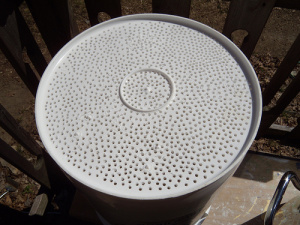BostonianBrewer
Well-Known Member
Brew Like a Monk is amazing

I disagree about Brewing Better Beer. The book is redundant and has absolutely nothing new (except the tip of adding roast grains at the end of the mash) besides Gordon Strong going on about his philosophy of brewing. Only brewing book I regret spending money on.
My third time reading thru Strong 's book was with a highlighter. Overlook his new age views and he some great process control tips to help make your good beer better. Yes, it has some dated material like Daniels, but easy to read and use if applicable to your process. Fix was good. Haven't been able to get past ch 3 of the yeast book (thanks chrisWhat's great about the book is his philosophy. What to worry about, what not to, the chapter about precision vs accuracy. The water chapter has actual advice vs the ridiculous table of classic city profiles and useless RA tables that you see in every other homebrewing book. Blending and competition brewing. What other book has this? Let me know as I will buy it.
 ) and I was let down by Charlie bamforths book 'beer'.
) and I was let down by Charlie bamforths book 'beer'.

![Craft A Brew - Safale S-04 Dry Yeast - Fermentis - English Ale Dry Yeast - For English and American Ales and Hard Apple Ciders - Ingredients for Home Brewing - Beer Making Supplies - [1 Pack]](https://m.media-amazon.com/images/I/41fVGNh6JfL._SL500_.jpg)









the Siebel Institute is selling the A Textbook of Brewing By Jean De Clerck for $75.00 http://www.siebelinstitute.com/products-a-books/brewing-textbooks. Its about $400 on amazon used.
Yeast by Jamil and Chris White is a good book, I haven't read Hops....
his book were issued in the 80's and 90's, right? Which one did you find useful?
Skip Hops, unless you want a bunch of super dry history and stories about hops. There is about a chapter's worth of actual science and applicable brewing techniques woven throughout a whole book of hop history. It is well written but don't expect to gain much practical hop knowledge from it.
I think I just expected a lot out of it because of how amazing Yeast was.
Science doesn't change.
but some of it is presented incorrectly and some of the older practices have been replaced by modern ones which result in a better product, easier brew day etc....remains relevant.
Oh yes, it does. New discoveries are made and new perspectives on old science emerge every day. In home brewing it is going to be more of the latter than the former but that is why these newer books have value. At the same time much of the old science
but some of it is presented incorrectly and some of the older practices have been replaced by modern ones which result in a better product, easier brew day etc.
Very true. It's literally a story book about hops. It is not a reference book. They have tried to disguise it as a reference book, but it is a book you read once and that's it.
True. But it's still a good book that hasn't been replaced by any other book of it's caliber.
Science doesn't change. It remains relevant.
gbx, I agree with your general idea, but in the specific case of Fix's literature, he is primarily discussing fundamental chemical and biochemical reactions, not techniques. I think that's the point that bacon is making. It's kind of like saying: there are breakthroughs everyday in the medical field... But your old organic chemistry text book from college is still pretty darn accurate.
Er....uh....what's a"zapap" mash tun?

I would mash in that. Brewing books of today don't even come within a fraction of a percent of being as informative as 1980's books. (plagiarism aside).
the Siebel Institute is selling the A Textbook of Brewing By Jean De Clerck for $75.00 http://www.siebelinstitute.com/products-a-books/brewing-textbooks. Its about $400 on amazon used.
"Is there a good book on reading for advanced brewers?"
Check Barnes and Nobles in the "My First Book" section. Lots of great books with pictures and simple words (like one, two, red, blue...) to teach advanced brewers how to read.